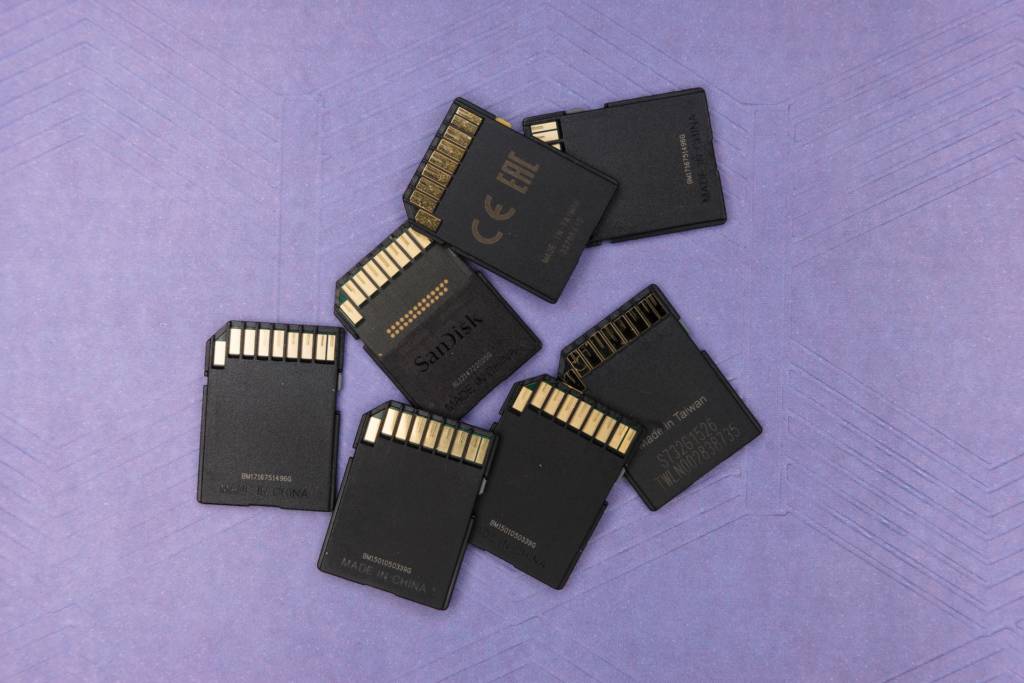For businesses and investors in India, virtual data rooms (VDRs) have become essential tools for handling intricate business transactions. These secure online repositories are used in mergers & acquisitions (M&A), fundraising, corporate audits, initial public offerings, and other activities that require a safe place to keep and exchange documents.
India’s M&A market is accelerating, with total deal value up 66% in 2025 vs 2024—and industry forecasts suggest deal momentum will remain strong through 2026 and beyond.
As the number of business transactions has increased, there is a need for secure, AI-driven data rooms to facilitate document sharing, improve compliance, and speed up deal finalizations. The VDR market provides numerous options, yet choosing the right one necessitates comprehending essential features, security criteria, and cost efficiency.
This guide will cover:
- What are due diligence data rooms, and why do they matter
- Key benefits for Indian businesses
- Must-have features in a modern VDR
- How to effectively use a data room in due diligence
- Expert tips for selecting the best due diligence virtual data room provider
What is a due diligence data room?
A due diligence data room is a secure space for storing and sharing confidential information before a merger, acquisition, or investment. Before virtual data rooms became a thing, companies used traditional data rooms for due diligence, physical ones.
Physical data rooms are brick-and-mortar locations where sensitive documents are stored. Interested parties, including buyers, sellers, and lawyers, would need to physically meet to review the physical documents. This was time-consuming, expensive, and location-dependent.
As of 2024, modern virtual data rooms have transformed due diligence processes, with cloud-based solutions accounting for 74.1% of the global market share. This trend toward cloud VDRs is a reflection of the shift to remote collaboration and the need for accessible and secure platforms in due diligence.
These cloud-based platforms offer a secure central hub to store, share, and manage confidential documents. Due diligence data rooms add security, efficiency, and controlled collaboration, so that multiple parties can access critical files remotely while maintaining strict permissions and audit trails.
Why use a data room for due diligence?
Virtual data rooms have become essential due diligence tools. Here’s why leading businesses, investors, and legal teams rely on data room due diligence software:
Key benefits of a due diligence data room
Speed and efficiency:
- Faster document review with instant, organized access. No more waiting for physical files or emails.
- AI-powered search and auto-indexing reduce manual work and cut due diligence time.
Top-notch security:
- Bank-level encryption, dynamic watermarks, and 2FA protect sensitive financial, legal, and IP documents.
- Compliance with India’s DPDP Act 2023 and global standards (SOC 2, ISO 27001).
Centralized organization:
- Structured digital folders replace chaotic paperwork. Users can upload, categorize, and update files in one click.
- Version control ensures everyone uses the latest documents, avoiding costly errors.
Real-time collaboration:
- Ability to securely share files with buyers, lawyers, and auditors across time zones.
- Built-in Q&A modules streamline communication and keep discussions audit-ready.
Full audit trail and transparency:
- Users can track every action: who viewed, edited, or downloaded files, and when.
- Compliance reports can be generated in seconds for regulators or stakeholders.
24/7 accessibility:
- VDRs allow you to review deals anytime, anywhere. This is critical for cross-border transactions and tight deadlines.
All these features make it much easier for businesses to:
- Close deals faster and eliminate bottlenecks in document exchange.
- Reduce risks with granular access controls and leak prevention.
- Cut costs as there is no need for physical data rooms and courier services.
Overall, for Indian businesses in 2026, virtual data rooms provide a competitive advantage for M&A, fundraising, and compliance.
Key features of an effective due diligence data room
Choosing the right virtual data room can make or break the success of your due diligence process. A high-quality data room should go far beyond just storing files. Here are the must-have features to look for:
1. Robust security and compliance
Security is non-negotiable in due diligence. Look for:
- Enterprise-grade encryption (AES-256 or higher)
- Two-factor authentication for user logins
- Granular access controls down to the document or folder level
- Compliance certifications such as ISO 27001, SOC 2, GDPR, and India’s DPDP Bill
- Watermarking and expiry settings to protect file usage
2. Access control and user permissions
VDR owners should control who can view, download, or edit specific documents. A good data room due diligence software provides features that allow businesses:
- Set user roles (admin, viewer, contributor, etc.)
- Create permission groups for different parties (e.g., internal team vs. investors)
- Restrict actions like viewing, downloading, printing, or forwarding
- Use NDA gates or click-to-accept policies before access is granted
3. Document management tools
Due diligence involves exploring hundreds of documents. The following features make it easier to handle them:
- Drag-and-drop file upload technology and bulk import
- Automatic folder indexing and smart folder structures
- Full-text search to find content fast
- Document preview in the browser without downloading
- Version control and user file visibility to track updates
4. Collaboration & Q&A
Smooth communication between parties is key:
- Built-in Q&A modules to manage and track questions from buyers or lawyers
- Commenting or tagging features for internal notes
- Notifications to alert users of new documents, answers, or requests
5. Activity tracking and analytics
Visibility into user behavior can help you gauge interest and stay on top of activity:
- Audit trails showing every click and download
- Engagement heatmaps — see which files are getting the most attention
- Exportable reports for compliance or post-mortem review
6. Ease of use (user interface)
No one wants to struggle with clunky software:
- A clean, intuitive dashboard that works without long training
- Multilingual support, especially for cross-border deals
- Simple navigation, even for first-time users
7. Mobility and accessibility
Work doesn’t stop at the desk in 2026. That’s why virtual data rooms provide:
- Mobile-friendly access via browser or app
- Cross-device support (laptop, tablet, smartphone)
- Offline access or sync options for on-the-go reviewing
8. Advanced tools
Some data rooms now include smart features that save time and automate workflows:
- AI-powered document indexing — automatically sorts and labels uploads
- Smart search that understands queries beyond keywords
- AI-assisted redaction and translation for sensitive or multilingual content
- Built-in e-signatures to accelerate agreement workflows
A great data room does more than just hold files. It helps parties move faster with due diligence (legal, financial, IT, etc.), stay organized, and keep sensitive information protected. Features like smart search, mobile access, and built-in Q&A are what modern users expect from their VDR software.
How to conduct due diligence using data room software
The cost of the data room report indicates that in 2023, businesses lost $4.45 million due to data breaches. When used correctly, a secure VDR mitigates the risk of data leakage and breaches. Here’s how to manage the due diligence process step by step:
Step 1: Prepare the documentation
Use a due diligence checklist to collect and digitize all the sensitive data:
- Financial: audits, tax records, forecasts, financial statements
- Legal: contracts, IP filings, litigation history
- Operational: supplier agreements, HR policies, IT infrastructure
Make sure all files are scanned, searchable, and redacted (if sensitive).
Step 2: Set up the data room structure
Create a logical folder hierarchy inside the VDR. Consistency here speeds up reviews and minimizes confusion.
- Create an intuitive folder hierarchy (e.g., /Legal/Contracts/2024).
- Mirror your checklist categories for consistency.
- Add a README file explaining the entire virtual data room structure to users.
Step 3: Upload and organize documents
Make sure everything is named, indexed, and easy to navigate:
- Use bulk upload or drag-and-drop to add files to relevant folders.
- Apply AI auto-indexing for smart tagging and OCR (for scanned PDFs).
- Standardize naming (e.g., NDA_AcmeCorp_2025-03.pdf).
Step 4: Configure user permissions
Assign access rights based on roles. Control what users can view, download, print, or comment on.
- Assign role-based access (e.g., investors: view-only; lawyers: download rights).
- Enable dynamic watermarks and restrict printing/editing where needed.
- Set NDA gates for critical documents.
Step 5: Enable Q&A and collaboration
Activate the Q&A module so that stakeholders can ask questions and request clarifications directly in the platform.
- Activate the Q&A module for secure, audit-trailled discussions.
- Assign team members to respond to queries (e.g., legal vs. finance).
- Use @mentions to streamline communication.
Step 6: Monitor activity and progress
Use analytics and audit trails to track who is accessing which documents. This helps to gauge interest, identify bottlenecks, and keep the deal moving.
- Track user engagement via heatmaps and audit logs.
- Identify bottlenecks (e.g., unviewed folders) and follow up.
- Generate weekly reports for stakeholders.
Step 7: Conclude and archive
Once due diligence wraps up, export an archive of all files, user actions, and communications. Most data rooms let you download a full audit trail for compliance or record-keeping.
- Download a full audit trail for compliance records.
- Archive the data room (or repurpose it for post-deal integration).
- Revoke access post-transaction to maintain security.
Use templates (checklists/folder structures, pre-made request templates) to standardize future due diligence.
How to choose a data room for due diligence

With dozens of virtual data rooms on the market, it’s easy to be overwhelmed by flashy interfaces and long feature lists. But the right VDR provider is not the one that has the most features. It is the one that has the features that fit your deal’s size, scope, industry, and sensitivity. Here’s how to make a confident, informed choice.
1. Identify specific requirements
A startup raising seed funding doesn’t need the same tools as a multinational preparing for an M&A. A business should define the nature and complexity of the transaction and then look for features needed specifically for it.
- Deal type: M&A, fundraising, IPO, or audits?
- Document volume: Estimate file size and user count.
- Must-have features: AI indexing, Q&A modules, compliance tools.
- User-friendliness: Should non-tech teams navigate it easily?
2. Research and shortlist providers
G2 lists around 92 VDR providers that operate globally. Going through all of them will take weeks, but here’s how to speed up this process:
- Look for reputable vendors with experience in your industry.
- Check third-party reviews (G2, Capterra) and client testimonials.
- Prioritize providers with a strong presence in India (local support, DPDP compliance).
3. Evaluate security and support
Check that the provider holds globally recognized certifications and complies with local data privacy laws:
- Certifications: ISO 27001, SOC 2, GDPR, and India’s DPDP Act.
- Security features: AES-256 encryption, 2FA, watermarking, and granular permissions.
- Support: 24/7 availability, multilingual assistance, and onboarding help.
4. Test with free trials or demos
Most providers offer demos or trial access, but it’s common to test it only from an admin perspective. Instead, involve someone from your finance or legal team — the ones who’ll actually upload and manage documents — to evaluate:
- Upload speed, search functionality, and mobile access.
- User experience
- AI capabilities, like smart search or auto-redaction tools.
5. Compare pricing plans
This process can take a few hours and even days, but it will save the budget in the long term. To not overpay for features you do not need, explore:
- Pricing models: Per-page, per-user, or flat-fee pricing.
- Hidden costs: Fees on storage, support, or extra features.
- Scalability: Pricing plans should align with future deal sizes.
6. Assess real support
In a high-pressure transaction, support can’t be outsourced to chatbots. Look for:
- A dedicated account manager for the deal onboarding
- Human support in your timezone
- SLAs for critical issues during the due diligence window
Pricing considerations for due diligence data rooms
A virtual data room can cost anywhere from $100 to $1000 per month. The pricing depends on multiple factors, such as storage volume, number of users, feature set (like advanced security or AI tools), and whether you choose a flat-rate or pay-as-you-go model. Below are the most common VDR pricing models:
| Pricing model | How it works | Best for | Pros | Cons |
|---|---|---|---|---|
| Storage-based | Pay per GB/month or total storage used | Small to mid-sized deals with predictable file volumes | – Cost-effective for limited documents – Easy to forecast for small deals | – Costs can spike with large data uploads – May require manual monitoring |
| Per-user | Charge per user (e.g., $50/user/month) | Deals with few participants (e.g., startups, small M&A) | – Transparent pricing – Good for controlled access needs | – Expensive for large teams – May restrict collaboration |
| Feature-based | Tiered plans (Basic, Pro, Enterprise) with varied features | Businesses needing advanced AI, security, or analytics | – Scalable for growing needs – Access to premium features | – Higher tiers can be costly – Risk of overpaying for unused features |
| Flat-rate | Fixed fee for full access (e.g., $5,000/deal) | Large, complex transactions (IPOs, cross-border M&A) | – No surprise costs – Unlimited users/storage | – Overkill for small deals – Less flexibility |
| Custom plans | Tailored pricing based on deal size, duration, and features | Enterprises with unique requirements or frequent transactions | – Perfect fit for specific needs – Often includes dedicated support | – Requires negotiation – Minimum commitments may apply |
When negotiating the pricing with the VDR sales representative, ask about:
- Volume discounts for multiple deals
- Temporary user licenses for short-term needs
- Bundled training/support
These questions help you get better value from your provider and avoid overpaying for features or licenses you don’t need.
Due diligence virtual data room: key takeaways
Nowadays, virtual data rooms have become the backbone of due diligence in the fast-paced deal ecosystem in India. Unlike physical data rooms, virtual solutions offer three unbeatable advantages for navigating M&A, fundraising, or compliance audits:
- Speed & competitive edge
AI-powered tools cut due diligence time and help close deals faster than traditional methods. - Ironclad security
With DPDP Act compliance and military-grade encryption, VDRs minimize risks of leaks or non-compliance penalties. - Cost efficiency
Using VDRS for the due diligence process eliminates the costs needed for printing physical documents and courier services. And they are accessible 24/7 from any part of the world. - Transparency & deal control
Built-in audit trails, activity analytics, and granular permissions show exactly who accessed what, when, and for how long—helping sellers manage staged disclosures, spot serious bidders, and keep due diligence defensible if questions arise later.
Overall, modern VDRs go beyond file storage. They also have tools for Q&A workflows, AI-powered indexing, and compliance automation, so businesses can do due diligence faster and better. If you’re evaluating providers or looking to compare features, pricing, and support levels, now’s the time to explore the options and find the right fit for the next deal.


